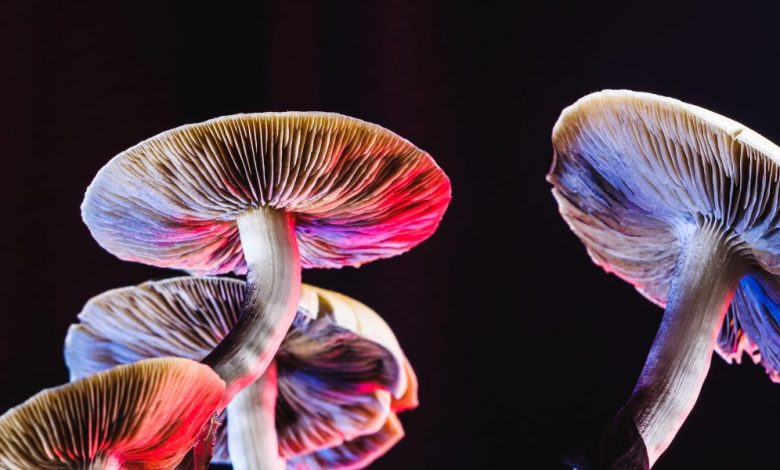Psychedelics for OCD, Depression, and Pain: Benefits and Risks

New research is exploring whether psychedelics, taken under close medical supervision, could help treat post-traumatic stress disorder, chronic pain, depression and obsessive-compulsive disorder. SciLine interviewed Dr. Jennifer Mitchell — a professor in the departments of neurology and psychiatry and behavioral sciences at the School of Medicine at the University of California, San Francisco — to discuss what scientists have found so far about the effectiveness of these drugs in treating these disorders and how they work can be administered safely.
The Conversation has partnered with SciLine to bring you highlights from the discussion, edited for brevity and clarity.
What are Psychedelics and How Do They Work?
Psychedelic basically means “mind manifesting,” suggesting that the connection helps one uncover issues that might otherwise remain deeply hidden from consciousness.
It’s a slightly different term from hallucinogen, sometimes used almost interchangeably with the term psychedelic.
A hallucinogen, by definition, is something that makes you see, hear, smell something that isn’t otherwise there, so you can imagine that there’s a lot of overlap between psychedelics and hallucinogens.
What types of psychedelics are being studied by researchers for potential therapeutic uses?
The two most studied drugs currently are MDMA and psilocybin.
MDMA is primarily being studied for the treatment of post-traumatic stress disorder and psilocybin primarily for the treatment of resistant depression and major depressive disorder.
MDMA is the furthest along because of Phase 3 data (late-stage research data) and the possibility of a new drug application being submitted to the FDA sometime later this year.
LSD is also being studied for a number of different indications, most notably OCD.
And then a few heavy hitters are now being tested in mostly healthy control populations, including drugs like mescaline and ayahuasca.
What have scientists found out about whether these drugs are effective in treating health conditions like PTSD or chronic pain?
The drugs seem to be quite effective so far. I think a key thing, however, is that they are typically administered in conjunction with some form of psychotherapy.
Therefore, when we look at the results of some of these recent studies, it is important to remember that these are not drugs that are administered in isolation. You don’t take home a bottle of pills and take them twice a day like you would with an antidepressant, for example. These are managed in a very special way.
What does therapeutic treatment with these drugs involve?
Typically, prior to taking the drug, subjects attend a series of prep sessions so that they understand a little about what will happen on an experimental session day.
And then the subjects come into a room that looks a lot like a cozy living room and spend the whole day there. The drug is typically given in the morning. For psilocybin, expect a six-hour ingestion and for MDMA, an eight-hour ingestion.
You are in the company of a group of trained providers: therapists, psychedelic brokers, psychiatrists, and clinical research coordinators.
What are the potential risks of using psychedelics for therapeutic purposes?
One concern we had is cardiovascular risk, and so we are currently very careful in some of the clinical trials to assess cardiovascular burden, including heart attack risk, during and after the experiment. This evaluation includes the recording of the heart rate and blood pressure of the participants.
Additionally, researchers are concerned about suicidality, in part because these are treatment-resistant populations we’re starting with, and so there’s concern that they might be destabilized — either by the psychedelic or simply by tapering off their other medications to take on a psychedelic participate in the study – that we might be taking the risk of suicide.
Finally, I think the FDA was concerned about the possibility that psychedelics could be addictive, so we followed up study participants to make sure they weren’t seeking or using drugs outside of the study.
What do we know about the safety of taking psychedelics outside of the clinical context?
I think we all heard stories from the 60’s and 70’s of people taking psychedelics and having very bad experiences. What we now know is that the environment in which you take the psychedelic is of paramount importance. It is not appropriate at this point to attempt to ingest some of these substances or to repeat some of these protocols yourself without supervision.
Watch the full interview to learn more about psychedelic medicine.
SciLine is a free service from the nonprofit American Association for the Advancement of Science that helps journalists incorporate scientific evidence and experts into their news.
Jennifer Mitchell, Professor of Neurology, University of California, San Francisco
Learn how to navigate and build trust in your organization with The Trust Factor, a weekly newsletter exploring what leaders need to succeed. Login here.



